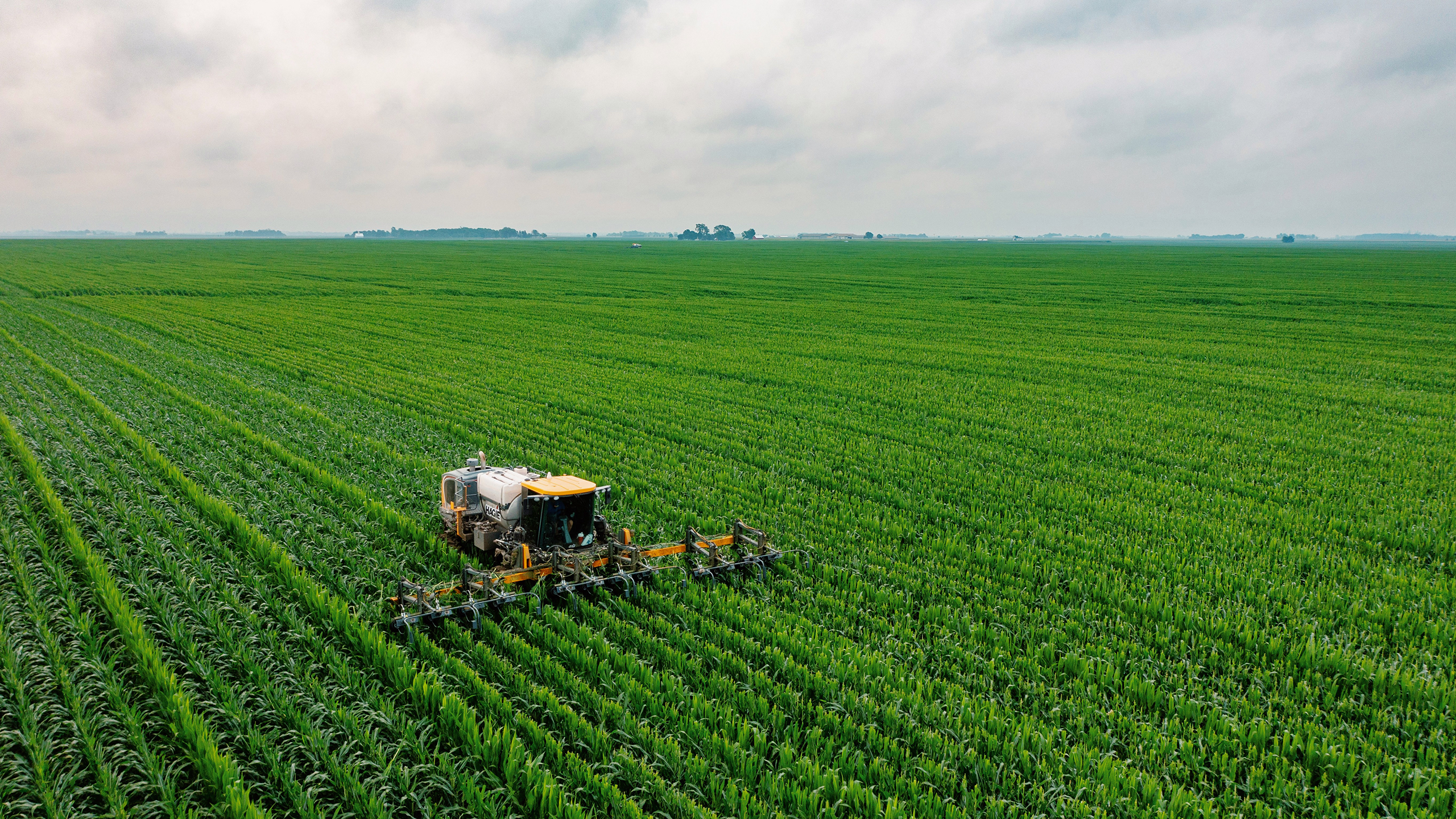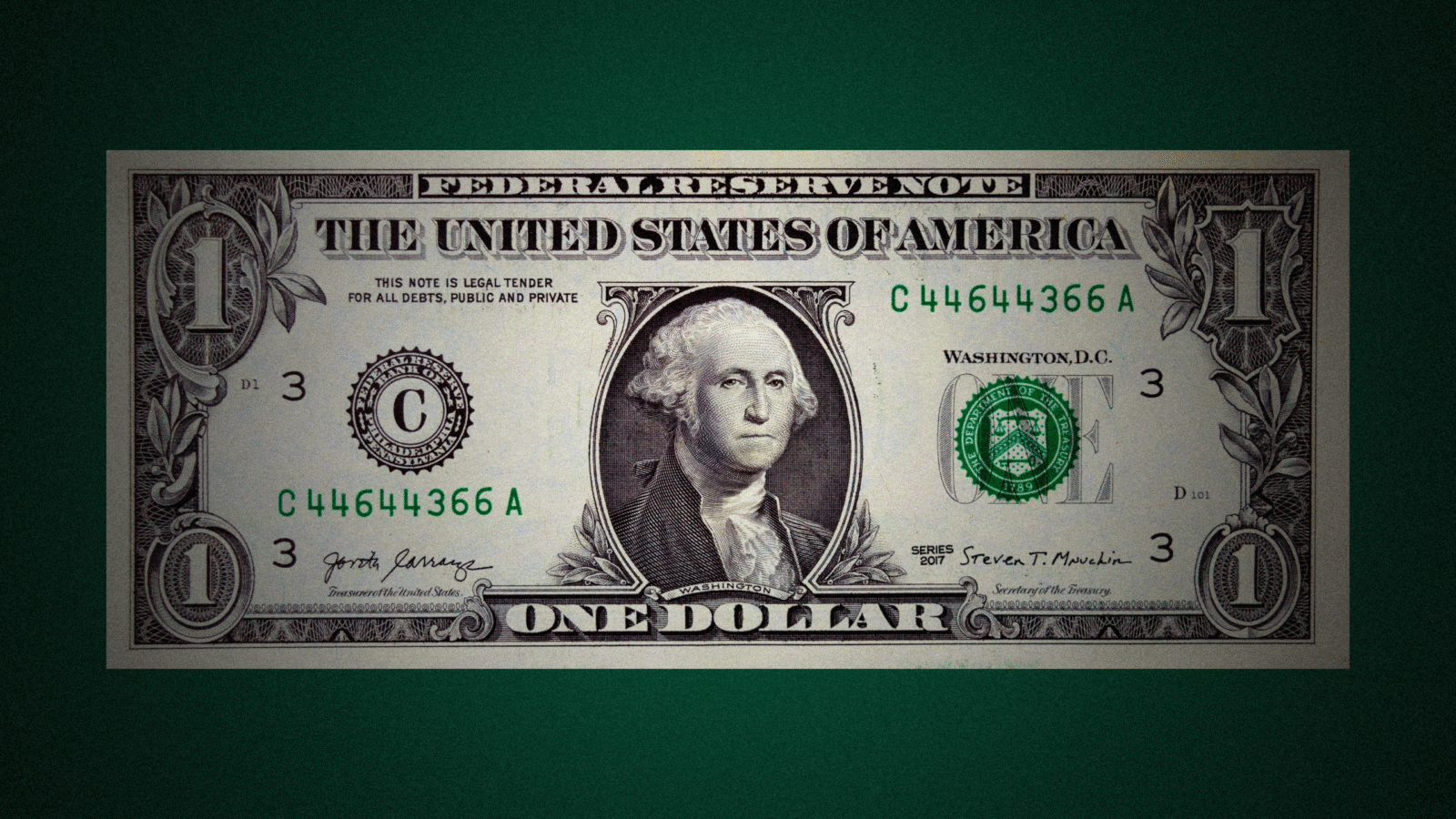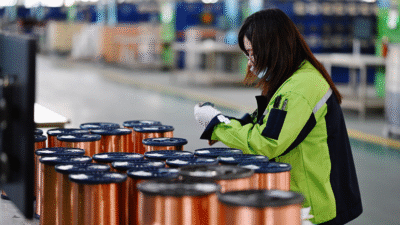China Targets America’s Farms as Trump Tariffs Spur Retaliation
After Trump increased tariffs on China last week, Beijing responded by imposing its own increased tariffs of on American agricultural goods.

Sign up for smart news, insights, and analysis on the biggest financial stories of the day.
The Trump 2.0 administration may be betting the farm, literally, on an international trade war.
After US policymakers doubled the levy on Chinese imports to 20% last week, Beijing responded on Monday by imposing its own increased tariffs of 15% on key American agricultural goods. It’s just the latest instance of US farmers being ensnared in the now-hot global trade war.
Not-So Green Acres
What do China, Mexico, and Canada have in common, other than being the three largest targets of the new tariff regime? They’re also, unsurprisingly, the three largest foreign markets by value for US farmers, according to the American Farm Bureau Federation, one of the industry’s largest trade and lobbying groups. Which means they’re especially vulnerable to retaliatory tariffs. About 20% of US farm income comes from exports, according to the organization. Mexico, Canada, and China accounted for roughly half that amount, buying $30 billion, $29 billion and $26 billion, respectively, worth of US farm goods last year. And of course, US farmers are also reliant on imports from those countries, now subject to tariffs; 80% of potash, a key fertilizer ingredient, comes from Canada, for example.
All of which make tariffs and trade spats a pestilence for US farmers:
- “There is no domestic market for the amount of corn, soybeans, wheat, and other agricultural products that we now export in significant quantities,” Joe Janzen, an agricultural economist with the University of Illinois, told the AP last week, adding that the trade war has effectively “snuffed out” profitability for the crops.
- By Monday, corn futures contracts saw a massive sell-off. Weekly net corn-contract selling hit its second-highest point ever, behind February 2023, while a sell-off in gross long positions reached a record high.
Already, the agriculture industry has, like the similarly tariff-prone auto industry, pushed for and received some temporary exemptions and protections. By Thursday last week, the Trump administration announced a new executive order easing tariffs on most goods under the USMCA trade agreement struck during Trump’s first term; that executive order also called for lowering the tariff on potash from 25% to 10%.
Tough Crop: Tariffs aren’t the only headache for the US farming industry, either. Farmers are already feeling the sting of a funding freeze to critical programs at the US Department of Agriculture. Meanwhile, BlackRock CEO Larry Fink on Monday warned that mass deportations will have “severe impacts on the agricultural sector,” likely leading to “a little more elevated inflation” before the end of the year.











